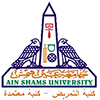About the Unit
In line with the principle of partnership for health and sustainable development in our Egyptian society, cooperation between all bodies and segments of society—citizens, professionals, volunteers in civil society organizations, scholars, and specialists—has become an urgent public demand and a fundamental societal necessity.
The success of the university, as a scientific institution, in fulfilling its mission to society depends on active community participation and the existence of mechanisms for cooperation and integration between universities and their research centers and society as a whole, including a fundamental role and effective participation of political parties and community leaders, including businessmen and religious figures. Accordingly, universities have become centers of outreach and awareness, beacons of progress, supporting individuals and groups with their various needs and empowering them to participate effectively through the provision of direct services, awareness, and health education related to these needs and common health problems in society. This educational plan incorporates the strategic health objectives of the Ministry of Health and educational institutions, including the advancement and elevation of public health, environmental sanitation, prevention, early detection, and rapid, safe intervention, providing continuous care for the healthy persons, the patients, and their families.
Vision
To provide ongoing opportunities for cooperation and integration between the college and the community as a whole, enabling it to compete efficiently and effectively. This is to meet the needs of society and keep pace with the various changes that occur and impact it on health, psychology, and society, and to achieve advancement in various aspects of individual, family, and community health—physical, psychological, social, and spiritual.
Mission
The College's Community Service Unit develops and implements mechanisms to ensure cooperation and integration between universities and their research centers and society as a whole. Community leaders, including businesspeople and religious leaders, play a fundamental role and actively participate in providing direct services, awareness, and health education related to common health needs and problems in society. This is achieved by utilizing the college's human resources, connecting them with the community, and establishing a mechanism for measuring performance and providing ongoing feedback so that the college can compete in the field of community service.
Objectives of the Unit
- Within the university and its affiliated healthcare institutions (all Ain Shams University hospitals):
- Identifying shortcomings and obstacles to meeting the needs of beneficiaries, particularly with regard to hospital discharge plans.
- Establishing a mechanism for developing a complementary healthcare plan for home care for all categories of beneficiaries.
- Covering the training needs of nurses and healthcare staff in coordination with relevant colleges.
- Developing a mechanism to ensure the rights of patients and healthcare providers.
- Beginning the implementation of nursing research, including training and educational programs for nurses and caring families, to improve service, performance, and targeted care for both healthy and sick patients.
- The community surrounding Ain Shams University:
- Conducting community surveys to identify community health and support resources and needs.
- Creating a database that reflects health-related needs and problems, as well as existing resources from service centers and civil society organizations, to achieve partnership, cooperation, and coordination.
- Setting priorities to assess the health needs of different age groups.
- Implementing health awareness and education programs based on these priorities—preventive, therapeutic, or rehabilitative—for individuals and caring families within the community.
- Developing A strategy to encourage businesspeople and subsidized entities to provide financial and in-kind resources to meet the diverse needs of service beneficiaries and the unit's programs.
- Strengthening and empowering the family's role as caregivers for the elderly, the chronically ill, and children with special needs to perform their roles efficiently and support the community.
